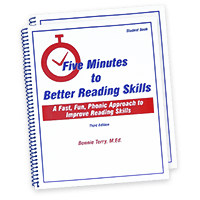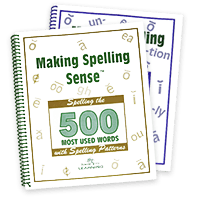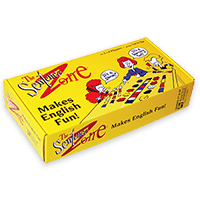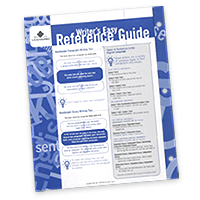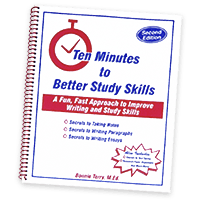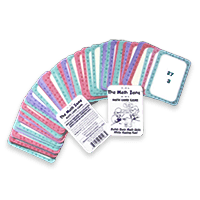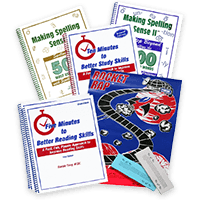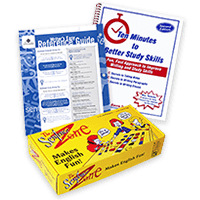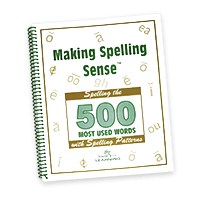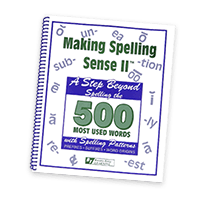Spelling and Auditory Processing
October 14th, 2019[vc_row][vc_column width=”5/7″][vc_column_text]
What Does Auditory Processing Have to Do With Spelling?
Auditory processing skills are foundational skills for both reading and spelling. Phonemic awareness and phonics are the first steps in learning to read as well as spell. Both phonemic awareness and phonics depend on the auditory system. Phonemic awareness is the ability to hear, identify, and manipulate the individual sounds – phonemes – in spoken words. Phonics is the ability to accurately relate an auditory sound with a visual symbol such as a letter or letters. This is exactly what we do when we spell.
Hearing is a process of learning. We hear in order to learn and understand. Auditory processing or perception then is the ability to hear, understand, and use what you have heard. Placing the correct letters with the sounds they represent is spelling. This process is also known as encoding.[/vc_column_text][vc_column_text]Auditory Processing Difficulties May Cause Spelling Problems
Typically, kids that have trouble with spelling may have one or more areas of auditory processing that aren’t working as efficiently as they should. For instance, they may have an auditory discrimination difficulty. Auditory discrimination is the ability to discriminate between words that are similar or different in the way they sound e.g.: mob and mop; very and berry; scream and stream; mesh and mush.[/vc_column_text][/vc_column][vc_column width=”2/7″][vc_single_image image=”10883″ img_size=”full” onclick=”custom_link” img_link_target=”_blank” link=”https://www.pinterest.com/pin/459930180679571575/”][/vc_column][/vc_row][vc_row][vc_column][video_item youtube_video=”true” title=”How to Spell Teaching Spelling-Auditory Processing and Spelling Help – Dyslexia Spelling” publisher=”Bonnie Terry” link=”https://www.youtube.com/embed/a2jPwLbGnjo”][vc_column_text]
Auditory Processing Affects Spelling
An auditory processing difficulty that affects spelling is Auditory-Visual Integration. This is the ability to accurately relate an auditory sound with a visual symbol.
Auditory Closure is another auditory processing area that affects spelling. This is the ability to combine sounds that are presented orally to make words. For instance, when given the individual sounds: ‘c’, ‘a’, and ‘t’; auditory closure is the ability to bring those individual sounds together to make the word ‘cat’. It is also the ability to ‘fill in’ the missing piece of a word. For example, if I were to say ‘po _a to’, you would be able to fill in the missing ‘t’ and say ‘potato’.[/vc_column_text][vc_column_text] [/vc_column_text][vc_column_text]You can improve auditory process skills and spelling skills with our Scholar Within Reading Program with Spelling and Phonics. This program improves 22 of the 27 areas of auditory, visual, and tactile/kinesthetic processing that impact learning.
[/vc_column_text][vc_column_text]You can improve auditory process skills and spelling skills with our Scholar Within Reading Program with Spelling and Phonics. This program improves 22 of the 27 areas of auditory, visual, and tactile/kinesthetic processing that impact learning.
[/vc_column_text][/vc_column][/vc_row]







